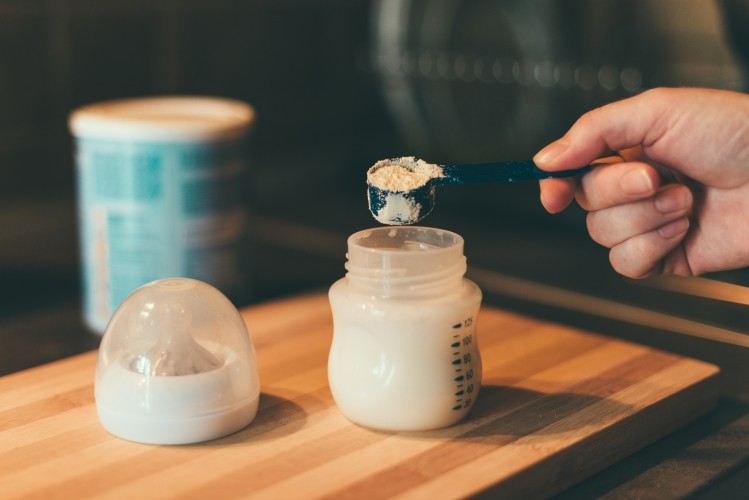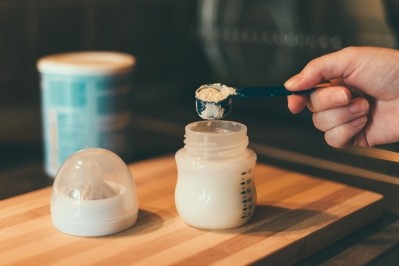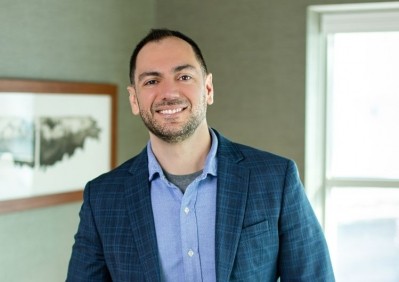Could cell-free biomanufacturing unlock a new generation of rare HMOs for infant formula?

Human breastmilk contains upwards of 200 HMOs, which comprise about 10% of the dry weight of mother’s milk and are not easily digested, but make their way to the large intestine, where experts postulate that they jump-start the infant’s microbiome, serving as food for certain gut bacteria such as B.infantis.
While breastmilk is always best, infant formula brands have been endeavoring to get closer to the real thing in recent years for mothers unable to breastfeed for as long as they would like, by adding HMOs that have been manufactured by genetically engineered microbes (typically bacteria) via a fermentation process.
The five most prevalent HMOs in breastmilk - 2'-FL, 3-FL, LNT, 3'-SL and 6'-SL – can all be produced via microbial fermentation today, with all five now featuring in Abbott’s Similac 360 Total Care formula, for example.
However, it has proved far more challenging to produce some of the more complex HMOs using this approach “at a level of efficiency that would make products financially accessible to a large portion of those using infant formula," claims Debut Biotech.
Debut Biotech and GeneChem to target eight rare HMOs
Under a joint development agreement, GeneChem (which has developed a method of producing 3,SL from N-Acetyl-D-Glucosamine, cytidine 5'-monophosphate and cow's milk using enzymes and has a coveted ‘no questions’ letter from the FDA) and Debut Biotech will work together to develop 'cell-free' approaches to producing a group of rare HMOs for the infant formula and nutritional product markets.
“Debut Biotech’s technology platform is uniquely positioned to bio-manufacture these molecules at the scale and economy required for widespread adoption and broad accessibility,” said Dr. KM Cho, COO of GeneChem, which will work with Debut on various aspects of production, including scale-up.
“Other companies using fermentation alone typically struggle on more complex ingredients. Debut solves this,” added GeneChem, which is currently building a dedicated commercial HMO manufacturing facility in Korea for global supply.

Cell-free biomanufacturing
So what is ‘cell-free’ biomanufacturing?
In a nutshell, Debut Biotech takes some of the machinery of cells such as enzymes, nature’s tiny biological catalysts, and in some cases, immobilizes them (essentially fixing them in place) such that they can convert low-value materials such as glucose into high-value ingredients such as colors or bioactives such as HMOs, in a continuous process.
This allows Debut Bio to operate across a wider range of conditions and allows for metabolic transformations that are not possible in cellular microbial fermentation systems, Debut CEO Dr Joshua Britton told FoodNavigator-USA.
In the case of HMOs, he said, it depends which ones you’re making, but the production process could require “three or four or more enzyme steps,” each of which might require different pH or other conditions, which would not be feasible if it were all taking place within a microbial host cell.
“Using cell-free systems, you're able to go from, say, one reactor at a pH5 to one at pH7, or whatever. You can apply very specific conditions [at different stages of a multi-step enzymatic conversion process] that physically can't be emulated in a [microbial host] cell.”
'As the market becomes saturated with 2’FL, people are looking for what’s next’
So which HMOs are Debut Biotech and GeneChem looking at?
“There are several HMOs which have come to the forefront of research for nutritional benefits that are complex enough that [microbial] cells can't make them at the moment, so with GeneChem, we have selected eight [HMOs] where we think cell-free biomanufacturing is really the only viable answer,” said Britton, who is not disclosing names at this stage.
He added: “GeneChem has a combination of cell free and fermentation technologies, but there’s stuff that Debut Biotech has developed over the last four to five years which could enable us to rival the volumes of a DSM, IFF or CHR Hansen [ingredient giants who all play in the HMO space now].”
“As the market becomes saturated with 2’FL, people are looking for what’s next.”
The aim: Pilot production by the end of 2023
Debut Biotech will work with GeneChem to go through the GRAS process for the HMOs in question, and has also developed an in-house testing platform for personal care and nutritional products “that allows us to take milligrams of an ingredient and go all the way from in vitro tests to the preclinical stage.”
On the operational side, the aim is to work with GeneChem to get to pilot scale production for the rare HMOs by the end of 2023, added Britton, who co-founded Debut Biotech in 2019, and has just moved into a new 30,000 square foot facility in San Diego housing almost 50 staff members.
“No one really cares if you can make them on a milligram scale anymore,” said Britton, who has also partnered with fine chemicals co DIC to develop food colors using cell-free biomanufacturing.
“What matters is whether you can scale up, and these larger companies have realized that this is really difficult if you’re trying to make them [rare HMOs] in cells.”
Cell-free biosynthesis… or plain old enzymatic catalysis?
To those wondering if ‘cell-free biomanufacturing’ is just a fancy new way of talking about enzymatic transformations that have been deployed in food production for decades, he said: “If you're just doing a glycosylation or a single-step transformation on a rebaudioside, for example [eg. to make a high-value steviol glycoside such as Reb M], that's just bio catalysis or enzyme catalysis.
“Whereas, for a process to be called ‘cell-free,’ typically you’d have to be using enzyme pathways that are found within cells, so you’re taking multiple-step pathways and doing what the [in the case of HMOs, mammalian] cell does, but without a cell.”

















